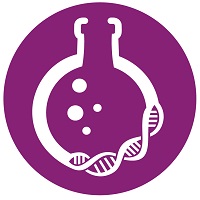Back
Bioanalytics – Biomolecular
Session: Symposium: Beyond Legacy Therapeutics - Navigating the Path Less Traveled (BM)
Characterization of Early Immune Response to AAV Capsid; Case Studies
Monday, October 17, 2022
9:30 AM – 10:00 AM ET
Location: 253 B
.jpg)
John Kamerud, PhD
Director
Pfizer
Andover, Massachusetts
Speaker(s)
Clinical development of AAV-based gene therapies typically includes assessment of immunogenicity of both viral capsid and the transgene product. Assay methods like those used for standard biotherapeutics are employed to detect antibodies against capsid and transgene product. However, the observation of adverse effects and loss of response/efficacy in some patients for several gene therapies has triggered consideration of a more complete characterization of the immune response. This characterization may include investigation of measuring early immune responses mediated by innate phase activation (cytokine release by innate immune cells/activated complement measurements). Further delineation of the humoral response may include antibody titer assessment to understand the relevance of post to pre-existing immune response, as well as isotyping and delineation of the time course of the onset of early immune response as it relates to immediate adverse events vs the onset of mature immune response leading to impact on efficacy. In this session we will present case studies illustrating the further characterization of the immune response and how they helped to understand the impact on safety and efficacy to shed light on mechanisms of adverse effects in gene therapy development. The overview from these talks could help support a trigger-based strategy to perform additional characterizations..
This talk is intended to be part of a symposium session where other aspects of immunogenicity characterization and methods that would be needed to address such questions. This proposal is an outcome from a cross functional collaboration of the Gene and cell therapy product (GCTP) community and Therapeutic Product Immunogenicity (TPI) community.
This talk is intended to be part of a symposium session where other aspects of immunogenicity characterization and methods that would be needed to address such questions. This proposal is an outcome from a cross functional collaboration of the Gene and cell therapy product (GCTP) community and Therapeutic Product Immunogenicity (TPI) community.
Learning Objectives:
- Get a better understanding of characterizing immune response to AAV capsids
- Learn more about clinical trial related challenges due to pre-existing reactivity
- Understand how to develop innovative methods like multiplexing to assess isotype specific responses

